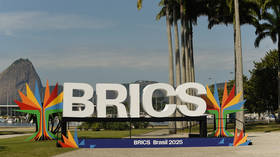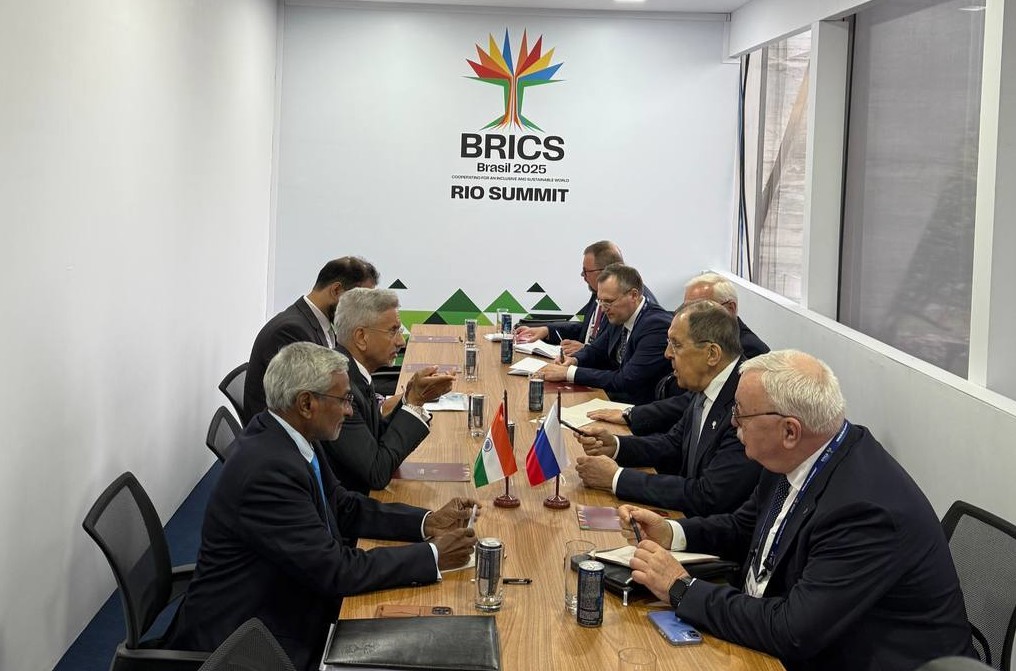Panama extends suspension of constitutional rights amid protests
June 26 (UPI) -- Panama will extend its suspension of constitutional rights in Bocas del Toro province through June 29 in response to escalating anti-government protests that have left one person dead, more than 300 detained and dozens injured, including 14 police officers.
After two months of roadblocks, demonstrations and vandalism, Panama's Cabinet Council said it was necessary to temporarily restrict the constitutional rights to free assembly and movement in an effort to restore order in the region.
On June 20, the government issued a five-day decree suspending those rights and launched a special operation that deployed 1,500 additional police officers to the province.
Bocas del Toro has become the epicenter of a deep political and social crisis in Panama, sparked by mass protests following the approval of a pension system reform and a security cooperation memorandum signed by the Panamanian and U.S. governments.
While the government has presented the memorandum as a way to strengthen security and cooperation, many Panamanians see it as a surrender of national sovereignty and a sign of U.S. interference in the country's internal affairs.
The current unrest in Panama stems from a combination of long-standing issues -- including poverty, social inequality and a lack of opportunity -- that have fueled widespread protests and violence.
Rejection of the pension reform, which eliminated some benefits, mobilized teachers and workers from the U.S.-based banana company Chiquita Brands. The company ultimately shut down its operations in Panama due to the strike. While some benefits were reinstated for banana workers, other affected groups -- including teachers -- remain mobilized and continue to demand the full repeal of the reform.
The demonstrations, which often include road blockades and clashes, have been met with a heavy police crackdown. Violent confrontations and mass arrests have led to accusations of excessive force and due process violations by authorities. According to Panamanian media reports, young people and teenagers make up a significant portion of the protesters.
The government has defended its crackdown, claiming that "criminal gangs" and "delinquent groups" have infiltrated otherwise peaceful demonstrations.
A growing concern is the lack of information about the whereabouts of those detained, who have been transferred to at least three provinces outside Bocas del Toro -- compromising their right to a legal defense, attorney José Luis Santamaría told La Estrella de Panamá.
Amid the crisis, President José Raúl Mulino has proposed a sweeping "state reform" and a constitutional overhaul. He acknowledged that the current system is "broken" and "completely collapsed," reflecting widespread public frustration with Panama's institutions and bureaucracy.
Still, the promise of reform has been met with skepticism. Many Panamanians have seen similar proposals fail to deliver results in the past, and distrust in the political class remains high. Critics question whether the initiative offers a real solution or merely seeks to calm public anger without addressing the root causes of the crisis.
The nationwide teachers' strike has entered its third month, with an estimated 30,000 educators participating -- roughly 57% of Panama's public school workforce.
On June 24, the government issued a decree allowing the immediate hiring of interim teachers to fill vacancies in areas where the strike continues. The measure will remain in effect through December 2025. The teachers' union has announced plans to challenge the decree in court, arguing it is unconstitutional.
The protests have dealt a severe blow to the economy, with daily losses estimated between $80 million and more than $100 million. The unrest has directly affected key exports, local businesses and investor confidence. Panama's banana industry -- one of its traditional agricultural and export pillars -- accounted for about 17% of total agricultural export value in 2023, or roughly $140 million.
While the government maintains its growth targets, any recovery will depend on ending the blockades and restoring social order.
Although the protests have not directly disrupted operations at the Panama Canal, they have caused indirect logistical delays. Road blockades have slowed or complicated the delivery of supplies, replacement parts and essential services such as crew changes and food.
Thanks to improved water levels and operational upgrades, the Panama Canal saw a 30% increase in vessel transits and a 22% rise in cargo volume between October 2024 and May 2025, according to the Panama Canal Authority.
Including both the expanded and original Panamax locks, the canal recorded 8,057 transits over the eight-month period -- up 29.2% from 6,235 during the same span of fiscal 2024.
Read More
- Strikes, roadblocks bring Panama to near standstill
- Panama Canal denies Trump admin. claim U.S. gov't vessels can now transit for free
- Marco Rubio warns Panama president that current status of canal 'unacceptable'
- Chinese presence in Panama might trigger canal treaty violation, Senate panel told
- Trump threatens sovereignty of Panama, Greenland, Canada
BRICS summit kicks off in Brazil

The 17th annual BRICS summit kicked off on Sunday in Rio de Janeiro, Brazil, which currently holds the group’s rotating presidency. The two-day event is dedicated to multilateral cooperation, as well as various global development and governance issues.
Brazil has named six priorities for this year’s agenda: global health cooperation; trade, investment, and finance; climate change; AI governance; reform of the multilateral peace and security system; and institutional development within BRICS.
This year’s summit brings together around 4,000 participants from 37 nations, including senior dignitaries from member states, partner countries, and international bodies, according to earlier estimates by Brazilian officials.
This year, the Russian delegation is led by Foreign Minister Sergey Lavrov. President Vladimir Putin has joined the plenary session – ‘Strengthening Multilateralism, Economic-Financial Affairs, and Artificial Intelligence’ – via video link.
BRICS was founded, primarily as an economic group in 2006, by Brazil, Russia, India, and China, with South Africa joining in 2010. Over the past year, the bloc extended full membership to Iran, Egypt, Ethiopia, the United Arab Emirates, and Indonesia.
Last year, at the group’s summit in the Russian city of Kazan, BRICS approved a new ‘partner country’ status in response to a growing membership interest shown by more than 30 countries.
06 July 2025
19:26 GMTThe group has officially welcomed its newest member, Indonesia, as well as named ten partner countries, according to the joint statement adopted at the summit. Here is the list of the official partners of BRICS:
- Belarus
- Bolivia
- Kazakhstan
- Cuba
- Nigeria
- Malaysia
- Thailand
- Vietnam
- Uganda
- Uzbekistan
- 19:09 GMT
The Russian delegation led by top diplomat Sergey Lavrov has met with India’s delegation headed by Foreign Minister Subrahmanyam Jaishankar, the Russian Foreign Ministry has said.

U.S. and Colombia recall diplomats
in deepening row
The alleged plot was first reported late last month by El Pais, and, according to recordings it reviewed and Republican sources, it involved former Colombian Foreign Minister Alvaro Leyva trying to contact U.S. Secretary of State Marco Rubio to have him and the Trump administration exert pressure to force Petro to resign.
In the recordings, Leyva states he met with Republican lawmakers, including Florida Reps. Mario Diaz-Balart and Carlos Gimenez, as he sought support for his plot.
On Wednesday, Petro commented on X that the previous Biden administration had helped him during "other times that they have wanted to kill."
"From now on, Bolivar's sword continues its path of liberation, and the energy of light and the vibrant people -- And the U.S. government?" he asked.
In the State Department's Thursday statement recalling John McNamara, the interim Charge d'Affairs at the U.S. Embassy in Colombia, spokesperson Tammy Bruce said the move was "for urgent consultations following baseless and reprehensible statements from the highest levels of the government of Colombia."
"In addition to the recall of the charge, the United States is pursuing other measures to make clear our deep concern over the current state of our bilateral relationship," she said.
Hours later, Petro released a statement recalling his ambassador, Daniel Garcia-Pena, from the United States.
"Daniel must come to brief us on the progress of the bilateral agenda to which I committed myself from the beginning of my government," he said.
Gimenez has hit back at the Petro government, accusing the Colombian president of creating a "media circus" to "distract the Colombian people from his terrible management, corruption and mishandling of public funds."
"Let these complicit puppets not complain later when they and their families are denied visas to enter the United States," he said on X.
The alleged plot has shaken the Colombian politics.
Earlier this month, Colombia Attorney General's Office opened an investigation into Leyva and his alleged plot.
It is also the second public spat between the two allies.
In late January, shortly after President Donald Trump took office, Washington and Bogota threatened one another with tit-for-tat tariffs as the White House was barred from sending military planes loaded with migrants to the South American country.




No comments:
Post a Comment